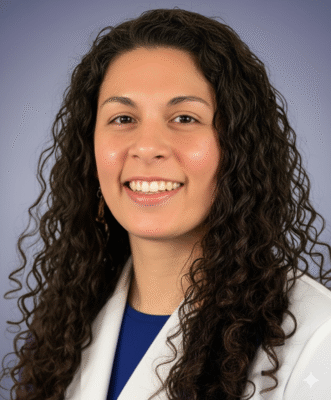
OUR Occupational therapist in Fort Lauderdale, Florida Location
Carolyn Rodriguez, OTR/L
Occupational Therapist
Carolyn Rodriguez is a licensed occupational therapist serving South Florida with a passion for neurorehabilitation, client empowerment, and evidence-based practice. She brings experience across inpatient, outpatient, and home health settings, supporting patients at various stages of their recovery journey—from acute injury through community reintegration. Carolyn holds a Master’s degree in Occupational Therapy and a Bachelor’s in Therapeutic Recreation, giving her a unique perspective on healing that blends function and engagement. She works closely with patients recovering from brain injuries, orthopedic trauma, and neurological disorders, focusing on personalized therapy that builds strength, confidence, and daily independence.
CAROLYN RODRIGUEZ, OTR/L
EDUCATION
MS: Master’s Degree in Occupational Therapy, Florida International University, Miami, FL
BA: Bachelor’s Degree in Therapeutic Recreation, Florida International University, Miami, FL
EXPERIENCE
- Concentra (Cypress/Sawgrass), Occupational Therapist, Orthopedic Outpatient.
- HCA University Hospital, Occupational Therapist, Acute/ Inpatient/Outpatient.
- Affinity Home Health, Occupational Therapist, Home Health.
- Memorial Regional South, level I fieldwork experience, Inpatient
Rehabilitation Neurology/ Covid Unit. - Mind and Mobility, Level II fieldwork, Outpatient physical and
neurodegenerative disabilities. - Hands with Care, Level II fieldwork, Outpatient hands.
Language:
English, Spanish
Occupational Therapy for Brain Injury Recovery in South Florida
Occupational therapy (OT) is a critical part of the recovery journey after a concussion or traumatic brain injury (TBI). At Radius TBI, our occupational therapists help patients regain the cognitive, physical, and emotional abilities needed to return to daily life—safely and confidently.
Meet Carolyn Rodriguez, OTR/L
Carolyn Rodriguez is a licensed occupational therapist with hands-on experience in neurologic rehabilitation, cognitive retraining, upper extremity therapy, and sensory reintegration. With a foundation in therapeutic recreation and a master’s degree in occupational therapy, Carolyn approaches each patient’s recovery holistically—treating not just symptoms, but the entire person.
She provides thoughtful, structured care tailored to each stage of brain injury recovery—from hospital discharge to return-to-work or return-to-school. Her practice emphasizes client-centered goals, evidence-based techniques, and family collaboration to ensure meaningful outcomes for every individual.
What Exactly Does Occupational Therapist Do?
Occupational therapy helps people regain the ability to perform daily tasks—like dressing, cooking, working, or driving—after an injury, illness, or cognitive decline. In TBI care, occupational therapists assess how the brain injury has affected a patient’s attention, memory, vision, coordination, and ability to complete everyday activities. Then, they create treatment plans that restore those skills or find adaptive strategies to work around limitations.
What Is the Role of Occupational Therapy in Brain Injury Recovery?
Occupational therapists play a vital role in helping TBI and concussion patients rebuild independence. They focus on cognitive and functional challenges such as:
Memory lapses, attention deficits, and executive dysfunction
Visual processing and hand-eye coordination issues
Fatigue and sensory overstimulation
Anxiety or frustration during daily tasks
Through targeted therapy, home modifications, and caregiver education, occupational therapists help patients regain control over their routines and lifestyle.
What’s the Difference Between Physical Therapy (PT) and Occupational Therapy (OT)?
While both OT and PT support recovery after injury, they focus on different outcomes:
Physical Therapy (PT) restores strength, balance, mobility, and movement.
Occupational Therapy (OT) helps patients relearn or adapt the tasks of daily living—like grooming, managing a schedule, or returning to work.
In brain injury cases, both are essential. PT may focus on dizziness and walking, while OT addresses concentration, memory, coordination, and function in real-world tasks. At Radius TBI, these disciplines work hand-in-hand as part of our integrated care model.
Why Choose Radius TBI and Carolyn Rodriguez?
Carolyn’s compassionate approach and strong clinical foundation make her a valuable part of our multidisciplinary team. She brings creativity, critical thinking, and cultural sensitivity to every session—empowering patients of all backgrounds to participate fully in their healing journey.
If you or a loved one is living with symptoms after a concussion or brain injury, occupational therapy may be the missing piece to recovery. Carolyn Rodriguez, OTR/L, is accepting new patients through Radius TBI’s South Florida program.
CONTACT US TODAY
Headache has been underestimated, under-recognized and under-treated throughout the world.
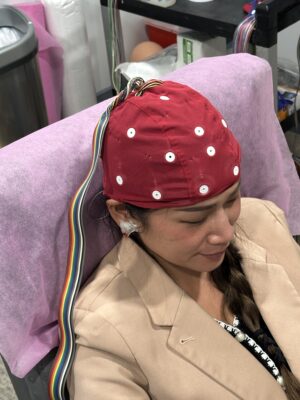
In the world of neuroscience, one of the advanced tools used to understand brain function is the Quantitative Electroencephalogram (QEEG), often referred to as brain mapping. But who interprets these intricate brain maps, and why is their expertise crucial?
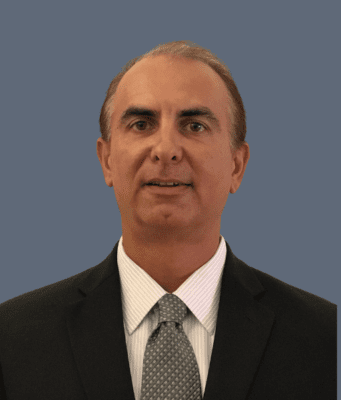
Meet Our No.1 Best Neuropsychologist in Tampa, FL Location
At Radius TBI, we pride ourselves on providing exceptional care for individuals suffering from traumatic brain injuries (TBI) and concussions. Our integrated medical team in Tampa, FL, includes some of the most respected and experienced professionals in the field, ensuring comprehensive and personalized care for each patient. One such esteemed professional is Dr. John J. Dabrowski, a board-certified neuropsychologist renowned for his expertise in neuropsychological assessments and cognitive function.
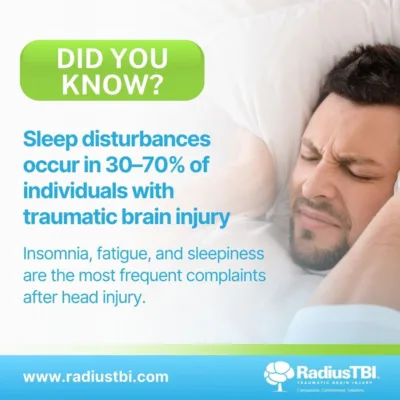
Did you know? Dealing with a traumatic brain injury (TBI) often means navigating a range of complications, one of the most prevalent being sleep disturbances. Surprisingly, 30-70% of individuals with a TBI experience some form of sleep disruption according to a study published on NCBI.
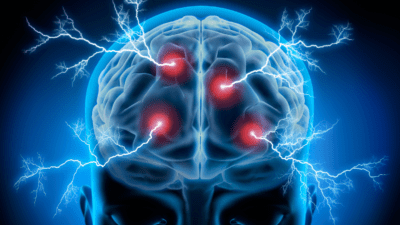
Understanding Routine EEG, QEEG, and Ambulatory EEG Tests
EEG, QEEG, and Ambulatory EEG are distinct forms of electroencephalography, each serving unique purposes in the diagnosis and monitoring of neurological conditions.
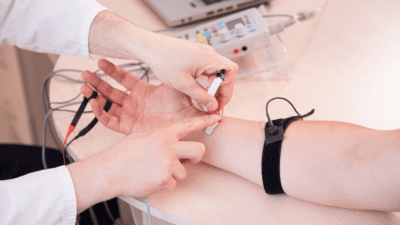
A Deep Dive into Electromyography (EMG Test): Decoding the Language of Muscles and Nerves
Electromyography (EMG) is a diagnostic procedure that plays a crucial role in unraveling the intricacies of the neuromuscular system. By measuring the electrical activity within muscles and the nerves controlling them, EMG provides valuable insights for the diagnosis and management of various neuromuscular disorders.

